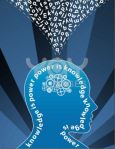 I recently had the opportunity to interpret for a machine specialist from Japan. He was visiting the U.S., trying to help different customers who had purchased his company’s machines get them set up correctly. After he ran some trials and explained what he had done to our English speaking staff, they thanked him for his time and I left the room with them. When he was alone with our Japanese staff, he proceeded to tell them how impressed he was with my interpretation. “Most interpreters can speak both languages and are fine with regular conversations but they get caught on the nitty-gritty machine stuff,” he told them. What impressed him about me is that I was able to talk like someone who knew about machines.
I recently had the opportunity to interpret for a machine specialist from Japan. He was visiting the U.S., trying to help different customers who had purchased his company’s machines get them set up correctly. After he ran some trials and explained what he had done to our English speaking staff, they thanked him for his time and I left the room with them. When he was alone with our Japanese staff, he proceeded to tell them how impressed he was with my interpretation. “Most interpreters can speak both languages and are fine with regular conversations but they get caught on the nitty-gritty machine stuff,” he told them. What impressed him about me is that I was able to talk like someone who knew about machines.
When you become an interpreter, it is easy to feel like you have arrived. You have been acknowledged as someone who is fluent in both languages and you are paid for that skill. However, that skill should never be static. We should never be content where we are. If we want to truly be able to express things the way someone would if they had spoken in their native language, we have to know what they know. I’ve heard experts say that if you are interpreting for a doctor, you should almost as much as a doctor knows. You can know all the words a doctor knows in two languages, but if you don’t have the background knowledge, you may not put them together correctly. Your interpretation will always lack the fluidity and coherence of the native language utterance.
The good thing is that we learn with each new job we take. So, all you have to do is be proactive about it. As you are interpreting, jot down or make a mental note of things you don’t understand or didn’t prepare for and look them up later. When you have the opportunity, ask questions. Don’t be afraid to speak up to clarify something that was not clearly stated. In my experience, most people respond favorably to their interpreter being thorough and trying to learn, rather than just glossing over things they don’t get.